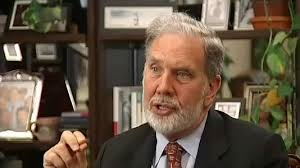 |
| Leon Botstein, President of Bard College |
Contrast Botstein to another charismatic president in the area, John Sexton at NYU. Sexton, with his strong Jesuit values, wants to create global citizens, and has over the last decade expanded NYU at a breathless pace not just in its neighboring NYC area, but also in Abu Dhabi and China. Except that he lost the confidence of his faculty in the process, and will step down in 2016 when his current contract expires. Sexton already has in place his post retirement plans - he will work for education for the needy. NYU has climbed up in rankings since he came in, has a solid reputation globally with its Abu Dhabi and China campus up and running. There seems to be no reason at this point to worry about its continuing rise in the rankings.
 |
| John Sexton, President of NYU |
Another important difference between the two lies in their ability to make their followers buy into their vision, by letting them observe the fruits of their labor. Despite the grumblings of Bard college faculty about the abrasive style of Botstein, they see the difference they are making. One glowing example is the Bard Prison Initiative (BPI) which runs "college in prisons" programs in nine states, and offers the same course content to prisoners as the regular students receive, and has an admirable ratio of graduation to enrollment. The guiding philosophy for this initiative is that critical readers learn to be better self critics, which in turn reduces recidivism. NYU faculty on the other hand do not see the immediate purpose of their seemingly meaningless expansion except in rising student tuitions and drop out rates.
This is a story of two leaders whose legacies are in question for different reasons - Botstein's because of the uncertain future of the organization he leaves behind, Sexton's because of his personal leadership style. Aristotle rightly points out that we cannot judge a man's life until they are dead, or in some cases even after they are dead. Thus it is too early to pass judgment on Bonstein or Sexton. But Bonstein seems more likely to prevail because his personal values have not yet come under the scanner. Sexton seems to have lost his credibility along the way, and the NYU faculty will try everything in their control to erase his legacy when he is gone, and perhaps even undo his vision. Sexton, like may other charismatic leaders seems to have overlooked his most important constituency - his faculty. Perhaps he will learn from this experience and redeem himself in his future projects. Watch this space for updates.
No comments:
Post a Comment